Starting an accounting practice in 2024: A comprehensive guide for success

Introduction: Embark on your journey: Launching an accounting practice in 2024
The need for expert accountancy services has never been more pronounced. With small businesses and individuals striving to navigate the intricacies of financial regulations and achieve their fiscal objectives, your practice can serve as a beacon of guidance and reliability.
Recognising the complexity and significance of this venture, we’ve crafted a detailed guide to navigate through the process, ensuring you’re well-equipped to establish a thriving practice.
What can you expect to learn? In the guide, we explore the key steps you will need to follow to be successful, such as:
- Qualification: Ensure you have the necessary education and professional qualifications.
- Experience: Gain relevant experience to enhance your competency and confidence.
- Business formation: Decide on the optimal structure for your practice, considering legal and tax implications.
- Essential tools: Invest in the right tools and insurance to support your operations.
- Client acquisition: Develop a marketing strategy to build a solid client base, leveraging digital platforms and networking.
Starting your own accountancy practice is a significant undertaking, but with the right approach, it can lead to a fulfilling and prosperous career. By considering these guidelines and leveraging our support, you’re well on your way to establishing a successful practice that meets the evolving needs of your clients and the market.
Starting an accounting practice in 2024: A comprehensive guide for success
The road to starting an accountancy practice is filled with challenges, opportunities, and the promise of creating a lasting impact.
In this comprehensive guide, we’ll walk you through each step on this exciting journey, from getting the right qualifications to establishing a solid client base. With our help, you’ll gain the knowledge and tools you need to successfully launch your own practice.
Why start your own accounting practice?
In today’s business world, the demand for professional accountancy services is on an upward trajectory. Small businesses and individual entrepreneurs need personalised accounting and bookkeeping services to comply with ever-changing regulations and meet their financial goals.
By starting your own accountancy practice, you can take advantage of this growing market, providing indispensable support to business owners and forging a path to your own success.
Before you start
First things first, here are ten considerations to keep in mind before starting an accountancy practice:
1) Legal requirements
Before embarking on your own practice, it’s crucial to check that you meet all legal and professional requirements. This means ensuring you possess a valid practising certificate from an accounting body, such as ICAEW or ACCA , which typically requires at least two years of relevant post-qualification experience.
This certificate is more than just a formality; it’s a testament to your competence and readiness to handle the complexities of public practice. Without it, you’re legally barred from starting a public practice as an accountant. Therefore, taking time to understand the prerequisites is essential to make sure you are fully compliant.
2) Understanding public practice
The realm of public practice encompasses a range of activities, including accountancy, audit, tax, and insolvency work. The Institute of Chartered Accountants in England and Wales (ICAEW) and Association of Chartered Certified Accountants (ACCA) provide detailed guidance on what constitutes public practice, clarifying when a practising certificate is necessary.
When you are ready to set up your practice, it is essential to inform the ICAEW or ACCA, even if you’re a sole practitioner. This step is critical for regulatory compliance, particularly in areas like anti-money laundering supervision.
3) Suitability for practice
Transitioning to running your own practice comes with significant responsibilities and challenges. It’s a shift that may be particularly stark if you’re coming from a non-practice background or a large firm where different departments handle compliance and marketing tasks.
In your practice, you’ll be responsible for every aspect of the business. It’s important to assess whether you’re comfortable and ready to handle these myriad responsibilities.
4) Setting goals
Reflect on what you hope to achieve by starting your own practice. Many individuals are drawn to the autonomy of managing their own business and the flexibility it offers in terms of lifestyle choices. These can range from balancing raising children with business growth to working part-time for lifestyle reasons.
Begin with a realistic and adaptable business plan, identifying key periods of workload and potential resource requirements. Regularly revisiting and adjusting your plan will help you stay on track and adapt to changing circumstances.
5) Identifying financial needs
A clear understanding of your financial needs is fundamental, so assess these needs as you would when considering a job offer. Make sure you know your income requirements, both current and projected. You should also develop a detailed financial plan and cashflow forecast, factoring in your anticipated income, charge-out rates, and recovery rates.
Be prepared for initial periods of lower business activity and consider supplementing your income with a part-time role.
6) Financial planning
Having a robust financial plan is vital for your practice’s viability. Your plan should cover all bases, including provisions for training, marketing, illness, holidays, and the potential cashflow impact of client billing arrangements.
Remember, it’s unlikely you’ll have enough clients to fill your schedule from the start, so plan for different scenarios, considering potential busy and lean periods.
7) Multiple roles
In your practice, you’ll wear many hats – from managing director to finance director, compliance officer, technical adviser, and more. You’ll also handle client-facing roles, accounts, tax preparation, and even areas like health and safety. With so many responsibilities, it’s crucial to stay organised, setting reminders for important deadlines and tasks.
If you’re new to some of these roles, don’t be daunted. Focus on acquiring the necessary skills and knowledge to manage these responsibilities effectively. Once your accounting firm reaches a certain size, you could also consider outsourcing certain tasks so you can focus on your area of expertise.
8) Managing inexperience
It’s natural for first-time entrepreneurs to feel apprehensive about their inexperience, but being a new business owner can also be an asset. Compared to older firms, you may be better placed to adopt new, potentially more efficient ways of doing things.
If you know you have gaps in your business or accounting knowledge, why not attend training sessions and seek advice on managing common obstacles in the sector? Remember, you’ll need to treat learning as an ongoing process if you want to achieve long-term success.
9) Recognising limitations
Know your strengths and when to seek expert advice. Build a network of specialists for areas outside your expertise. Be transparent about your limitations with clients, and ensure clarity in your arrangements with specialists outside of your business. This approach will help manage risks and maintain professional integrity.
10) Long-term vision
Your long-term goals will significantly shape your practice. Decide early on whether you intend to remain a sole practitioner or grow into a larger firm. This decision will influence many aspects of your practice, including staffing, office location, and marketing strategies.
If you plan to hire staff, consider the complexities of recruitment and human resource management, including your legal obligations as an employer.
By thoroughly addressing each of these areas, you’ll be better prepared for the challenges and rewards of starting and running your own practice.
If you’ve been through all of the above steps and you think you’re ready to start your own practice, keep on reading.
Step-by-step: Starting your accounting practice
1. Get qualified
Building a solid educational foundation is paramount as you embark on your entrepreneurial journey. Beyond expanding your accounting knowledge, qualifications from renowned bodies such as the ICAEW or the Association of Accounting Technicians (AAT) can give you greater credibility. Becoming a chartered accountant can also help instil confidence in potential clients, paving the way to more business opportunities for your practice.
2. Gain experience
While not always mandatory, gaining practical experience as an accountant or financial adviser enhances your ability to find clients and improves your practical skills and knowledge.
If you don’t already have this experience, consider working for another firm or volunteering in a finance role to garner invaluable insights.
3. Set up your business
The initial step in your entrepreneurial voyage is deciding how to structure your business (more on this in the next section). Whether you opt for a limited company or choose the flexibility of a sole trader, this decision impacts legal standards and tax obligations.
4. Tools of the trade
To run a modern accountancy business successfully, invest in essential tools such as accountancy software and insurance. Professional indemnity insurance, in particular, is vital for offering bookkeeping or accountancy services. You should also develop a realistic business plan to help chart your course to success.
5. Build a client base
Effective marketing is key to the success of any business. The most challenging aspect of business for any new venture is gaining traction in the industry and acquiring new clients.
When it comes to building a robust client base, creating a polished website is a must. Attending industry events, asking for client feedback and referrals, and refining your marketing strategy are also great ways to attract and retain clients.
Deciding on a business structure
There are pros and cons to every business structure, so you should weigh up all your options to find the best way to run your practice. Here are a few things you should take into account:
Choosing your legal structure
There are several business structures you might opt for, even as a start-up. Many new business owners set up as sole practitioners (also known as sole traders). Alternatively, you may choose to enter a business partnership with someone else, either with another accountant or even your spouse.
Another popular business structure choice is a limited company. Incorporating your practice can offer various benefits and could align well with your professional approach.
Of course, the right decision will depend on your specific circumstances. If you need help determining which structure would best suit your practice, get in touch with us to discuss your options.
Identifying the principals
Often, an accountant’s spouse will play a significant role in their practice, possibly as a shareholder or director. In cases where non-members are principals in regulated firms, the ICAEW and ACCA require them to become affiliates, which could mean incurring additional costs.
It’s also vital to understand what defines a member firm. If your firm doesn’t qualify, you won’t be covered by ICAEW’s and ACCA’s practice assurance standards or the money laundering supervision scheme.
Appointing an alternate
If you’re a sole practitioner, it’s wise to have an alternate to manage your practice in your absence. This will often involve entering a mutual arrangement with another practitioner.
In regulated areas, there are specific considerations for alternates, but these are generally manageable. Remember, you can’t sign audit reports as an alternate. Furthermore, if you hold client funds, the ICAEW requires you to appoint an alternate, who should also be a signatory to your client bank accounts. This ensures they can handle client money requests if needed.
Whoever you choose as your alternate, it’s highly advisable to formalise this arrangement. You should also consider how your firm’s affairs should be managed in the event of your death or sudden illness. This can ensure peace of mind for you and your loved ones.
Understanding your target market
- Estimating demand: Before diving into the entrepreneurial waters, it’s wise to assess the demand for accountancy services in your area. Many people and organisations may provide accountancy services including qualified accountants, unqualified individuals offering basic services, online accountancy firms, and even banks providing personal tax services. Identifying the different services available in your area can help you position your practice strategically.
- Check out the competition: Conduct a thorough online search to gauge the existing accountancy practices in your area. Determine the size of these practices, the range of services they offer, and any professional memberships they hold. This research helps you understand your competition and tailor your services to stand out, especially if you plan to offer specialised services.
- Consider what sets you apart: It’s essential to identify and highlight the factors that differentiate your practice from your competitors. While clients are cost-conscious, competing solely on price is not advisable. Instead, focus on providing value that justifies your fees, attracting quality staff and clients. You can also emphasise factors like personalised services, industry expertise, and proactive advice.
- Client surveys: Consider conducting informal surveys among potential clients to identify any pain points with their current accountants. Common complaints often revolve around a perceived lack of interest in their business or a dearth of proactive advice. You can use these insights to build a service offering that caters to your target market’s needs.
- Proactive approach: Be proactive in understanding the services potential clients are looking for. You could suggest additional services that they may not have considered, such as management accounting, assistance with pension auto-enrolment, and general business advice. Staying ahead of upcoming changes that could affect your clients such as Making Tax Digital can also help inform your approach.
Decide which accounting services to provide
The selection of services you provide to your clients will hinge on various factors, including:
- your own qualifications, areas of expertise and personal interests
- the qualifications and skills of your staff
- who your clients are
- how many clients you have.
Many accounting firms primarily focus on preparing accounts, but they also might perform audit work and offer tax services to both individual and business clients. Additional services you might consider include:
- business-related services such as payroll, bookkeeping, and VAT management
- insolvency services
- investment advice
- probate services
- general business consultation and support, like advising on pension auto-enrolment requirements for employee benefits.
Bear in mind that areas like audit, insolvency, probate, and investment advice are regulated fields, and you’ll need the right qualifications to handle such work.
You’ll likely engage with specialist consultants, like tax and VAT experts, to provide a comprehensive ‘one-stop’ service to your clients, without having to manage all aspects of the business yourself. It’s beneficial to identify reputable local consultants and understand their fees.
Consider outsourcing routine tasks to focus more on higher-value services that command greater fees.
Adapting to Making Tax Digital
Under Making Tax Digital (MTD) for VAT rules, VAT-registered businesses must maintain digital records and submit quarterly returns. This change opens up opportunities for you to offer broader bookkeeping services, allowing business owners to focus on their core operations while you manage the new record-keeping requirements.
You should acquaint yourself with MTD’s requirements and become proficient in the common software packages your clients use.
Online accountancy services: A modern frontier
Don’t overlook the digital realm
In the digital age, the possibility of offering online accountancy services to clients across the country is a game-changer. Your clients can input business transactions using cloud-based accounting software, providing you with the flexibility to work remotely. Ensuring that your website is optimised will also help it appear prominently in online searches for accountancy services.
Customer profiles and market
Your client base may predominantly consist of self-employed sole traders, local businesses, clubs, societies, charities, or other organisations. Private clients may also form a segment of your clientele. It’s crucial to identify your target market and tailor your services accordingly, recognising the diverse needs of these different client groups.
Fees and pricing
Pricing your services competitively is a crucial aspect of attracting and retaining clients. Keep in mind that small businesses and self-employed individuals often have limited budgets. Offering a variety of services, including payroll, bookkeeping, VAT, insolvency, probate, and general business advice, allows you to cater to a broad range of clients.
Tailoring your services
Understanding your client base allows you to tailor your services to meet their specific needs. If your clients are primarily small businesses, you may find that they require assistance with bookkeeping, payroll, and VAT returns. For private clients, services such as tax planning and estate administration may be more relevant. Stay attuned to the needs of your clients and adjust your service offerings accordingly.
Marketing your accounting business
Create a welcoming environment
Whether you’re working from home or renting business premises, a well-presented office space can enhance your practice’s image and create a welcoming environment for clients.
If you’re an employer, providing your staff with a comfortable working space is essential, as satisfied employees will positively represent your firm.
An online presence for virtual accountancy services
For those offering exclusively online accountancy services, your website becomes your primary interface with clients. It’s imperative to ensure that your website is professionally designed, user-friendly, and functions as an effective digital ‘shop window’ for your services.
Marketing your practice
Promoting your accounting practice is essential to attract potential clients. You can employ various marketing strategies, including:
- networking with other local professionals and businesses
- targeting specific sectors and speaking at industry events
- advertising discounted services to charities or local associations
- creating a Google Business Profile to enhance local search visibility
- getting listed in professional directories
- paying for ads on search engines
- promoting your services on social media.
Why choose us as your partner?
Setting up your own accountancy business is a significant career move, but success hinges on careful consideration. Key factors to contemplate include your qualifications, experience, the type of business structure you want, necessary insurance and registrations, and your marketing strategy.
A comprehensive understanding of your target market, client demand, and your practice’s competition are also crucial.
Our expertise is grounded in our extensive experience as a thriving UK accounting firm. We understand the challenges faced by new entrants, and our mission is to provide you with clear, actionable insights to navigate the initial hurdles successfully.
Well-versed in the requirements set by regulatory bodies, we ensure your practice aligns with the highest professional standards. We’ll help you transform your dream of running a successful accountancy firm into a reality.
Disclaimer: The content of this document is provided for informational purposes only and is not intended as professional advice, nor should it be used as a substitute for consultation with a qualified accounting professional. While every effort has been made to ensure the accuracy and reliability of the information contained herein, it is important to note that the finance sector is subject to continuous changes, updates, and evolving regulations. Therefore, we do not guarantee the information in this document is free from errors, omissions, or inaccuracies. We recommend consulting with an accountant to obtain the most current and relevant advice tailored to your specific needs and circumstances.
Heard enough?
Elevate your financial game with our insightful eBooks! Download now and explore a world of professional knowledge. Start enhancing your expertise and achieving success today!
Get in touch with us
Read our latest ebooks
Our detailed analyses on critical business and tax matters bring our wealth of knowledge directly to you, offering enhanced clarity and understanding to excel in your profession.

The role of technology in enhancing financial accuracy for your small business
November 19, 2024
Discover how technology can enhance financial accuracy for your small business. Learn about accounting software, automation tools, and strategies to make better decisions.

The essential guide to optimising your business with eCommerce accounting
July 30, 2024
Unlock your eCommerce potential with our guide on optimising accounting. Learn to manage finances, track cashflow, and stay compliant. Start today!

How to set up a community interest company in 2024
May 28, 2024
Starting a CIC in 2024? Blend profit with purpose. Our guide details how to establish a CIC, focusing on both generating income and also benefitting the community

Starting an accounting practice in 2024: A comprehensive guide for success
March 5, 2024
Starting an accounting practice in 2024 is challenging yet promising. Here's a guide to help you navigate the process and make a lasting impact.







